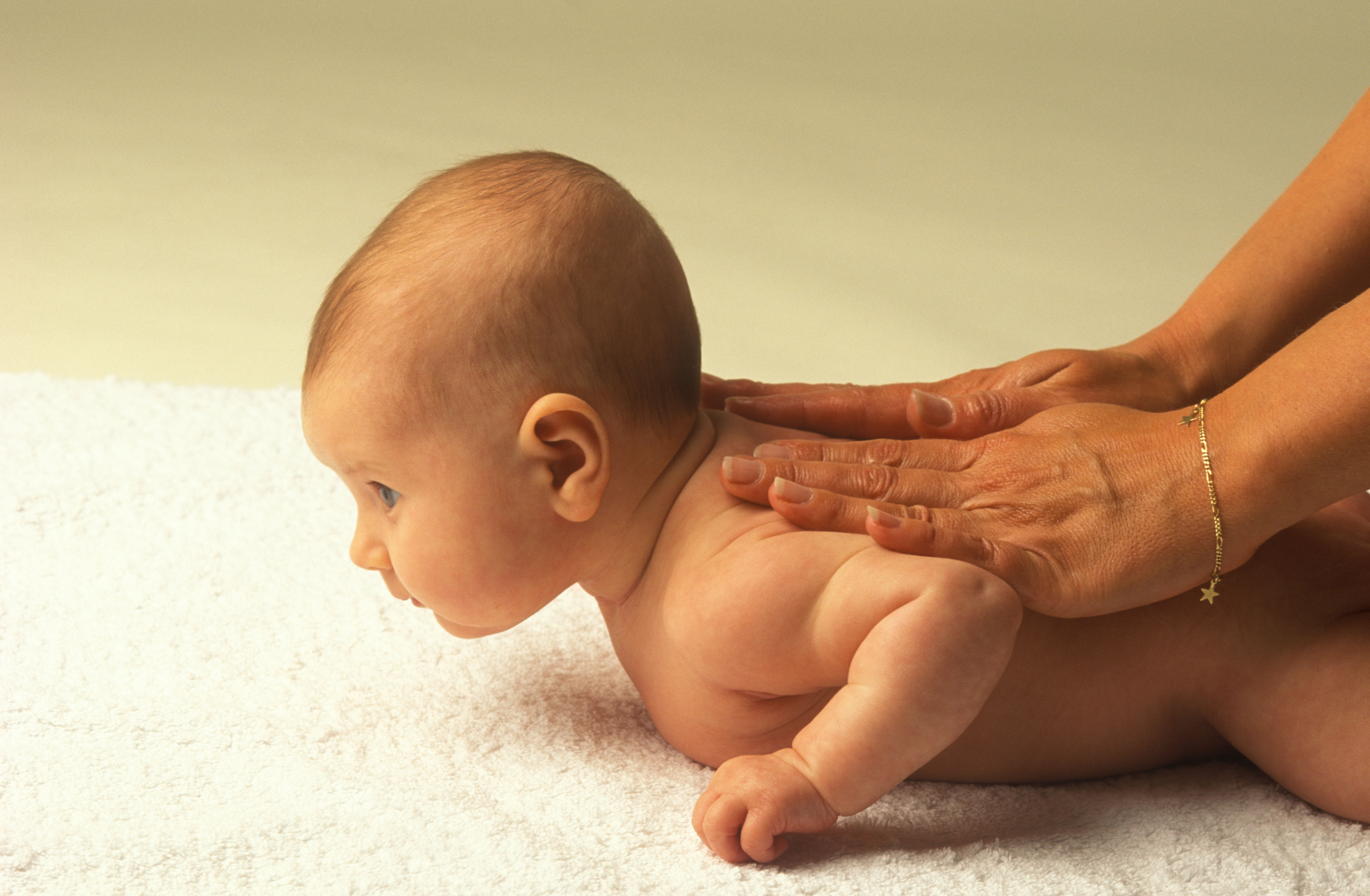Should you be massaging your baby?
It may sound a bit strange, but research suggests infant massage could have numerous benefits


A free daily email with the biggest news stories of the day – and the best features from TheWeek.com
You are now subscribed
Your newsletter sign-up was successful
Expectant and new parents love to know exactly what baby gear they should be buying. People are eager to make suggestions: the best swings, the right carriers, the MamaRoo, the Rock n' Play, the Miracle Blanket, all "guaranteed" to soothe your kiddo. But here's one suggestion you probably don't hear very often: infant massage. It may sound "out there" — and maybe I'm biased because I live in Los Angeles — but there's a lot of research supporting the benefits of this calming technique.
But what, exactly, is baby massage? Surely we can't just give our kiddos a rigorous rubdown, right? Infant massage is seen as a form of therapy across the world, and a bonding method between parent and baby. It's usually done during the first year of a child's life and involves gently rubbing and kneading the baby's body. There are two styles: Indian, which is rigorous, and Western, which is a bit more gentle. In the U.S., parents also use infant massage to ease common problems like colic and gas pains. Research also suggests it can help with weight gain, sleep, and bonding and intellectual development. It can even help ease postpartum depression in new mothers.
It may sound too good to be true, but if you think about it, it makes so much sense; we hear how beneficial skin-to-skin contact can be for babies. And it's natural that we want to hold and touch our infants. Massage provides a structured place for that mother's (or father's) touch. "Parents are the expert on their babies, and therefore the best person to massage their babies," says Summer Sinclair-Menkee, CEIM (Certified Educator of Infant Massage). "Early touch is so crucial to newborn development, and babies would rather feel skin on skin from mom or dad. The tools and techniques parents gain from an infant massage class give them the confidence to soothe their infants, tune in to their non-verbal cues, and bond deeper with the person that is their baby."
The Week
Escape your echo chamber. Get the facts behind the news, plus analysis from multiple perspectives.

Sign up for The Week's Free Newsletters
From our morning news briefing to a weekly Good News Newsletter, get the best of The Week delivered directly to your inbox.
From our morning news briefing to a weekly Good News Newsletter, get the best of The Week delivered directly to your inbox.
When should you start massaging your little one? "It's best to wait until baby's umbilical cord falls off to begin infant massage with your newborn," Sinclair-Menkee explains. Not only is there a right age, there's also a right time to massage. "The best state to massage you baby in is 'quiet alert,'" Sinclair-Menkee says. "You don't want to wake your baby up for a massage, nor do you want them to be too fussy or crying during massage. Usually after a nap, a diaper change, or 15-20 minutes after a feeding, so they've had time to digest, is the best 'quiet alert' window for newborns. It's baby-led. Once your infant is two to four months old, then you can start implementing a bedtime routine with massage and bath time. Some parents like massage before bath time, and some prefer it after the bath. This just depends on you and baby."
There are a number of educational resources available for parents who want to give this a try. Sinclair-Menkee recommends Infant Massage: A Handbook for Loving Parents by Vimala McClure, and Loving Hands: The Traditional Art of Baby Massage by Dr. Frederick Leboyer. Curious parents can also sign up for an infant massage class with a Certified Educator of Infant Massage.
So, are there any downsides to baby massage? Sinclair-Menkee says she's heard concerns that it could be "messing up their organs," but says this is entirely false. "The only thing that a parent could do 'wrong' during belly massage is massage counter-clockwise, which would back the baby up, rather than relieve them," she explains. "The must-do 'right' with the belly routine is to only massage baby's belly in a clockwise direction around the naval, because the colon starts on the right side and ends on the left side, like an upside down horseshoe."
In terms of massage tools, you'll need some kind of oil or lotion. Organic cold-pressed vegetable oils (seed, nuts, fruit, or plant-based) are recommended by the International Association of Infant Massage for massaging newborns. "I prefer and carry organic cold-pressed mustard seed oil and sweet almond oil because they are most commonly used in the East Indian tradition, which was my first introduction to infant massage," Sinclair-Menkee says.
A free daily email with the biggest news stories of the day – and the best features from TheWeek.com
When I was pregnant with my daughter, the hospital baby care class provided some information on infant massage, but I never learned more than the basics. And of course, I didn't retain much after I actually gave birth. Had I known more about the benefits of baby massage, I would have paid more attention. If massage can ease those first fraught months after birth and calm your crying child, it's worth a shot.
Writer and blogger Lindsey Hunter Lopez is currently immersed in the world of parenting thanks to her two small children. Her work has appeared at Parents, SheKnows.com, L.A. Parent, OK!, CNN, FOX News, and Preen, among other publications. Lindsey is a graduate of the University of California, Santa Cruz, and New York University. She's endlessly fascinated by parenting trends, subcultures, social media phenomena, and children's clothing.
-
 Why are election experts taking Trump’s midterm threats seriously?
Why are election experts taking Trump’s midterm threats seriously?IN THE SPOTLIGHT As the president muses about polling place deployments and a centralized electoral system aimed at one-party control, lawmakers are taking this administration at its word
-
 ‘Restaurateurs have become millionaires’
‘Restaurateurs have become millionaires’Instant Opinion Opinion, comment and editorials of the day
-
 Earth is rapidly approaching a ‘hothouse’ trajectory of warming
Earth is rapidly approaching a ‘hothouse’ trajectory of warmingThe explainer It may become impossible to fix
